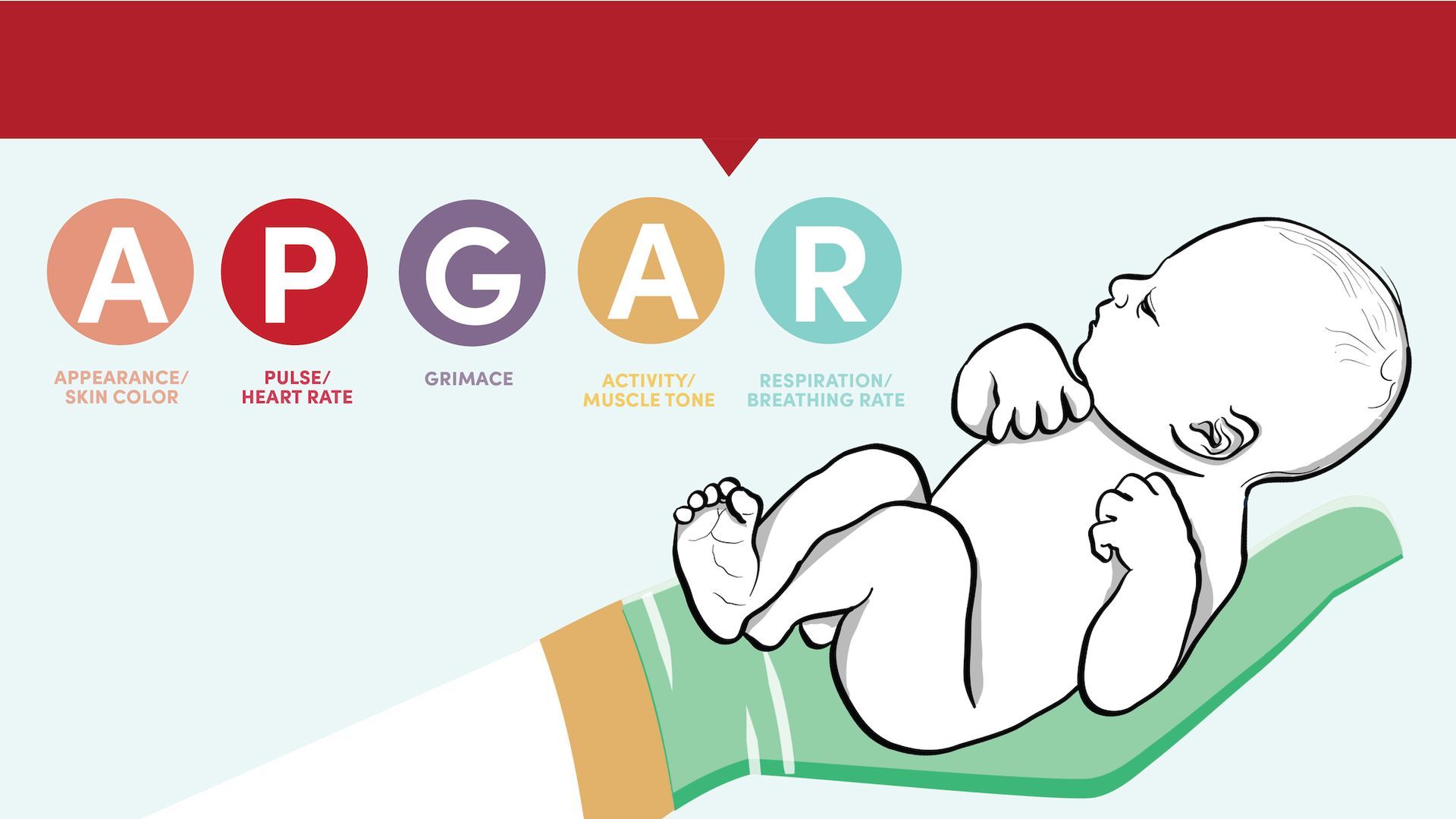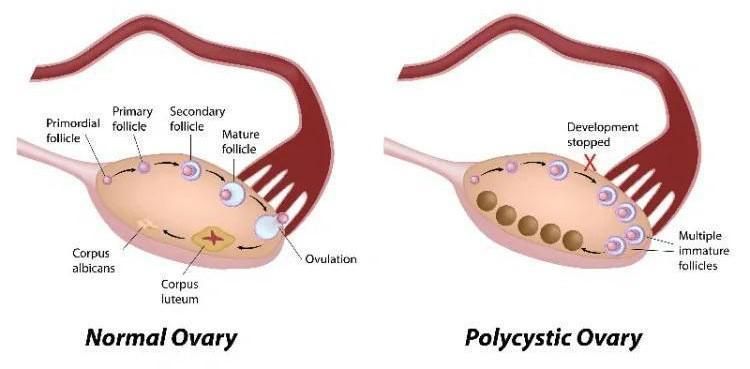June 7, 2024
What is Polycystic Ovarian Syndrome (PCOS)? PCOS is a common condition which affects women of all reproductive ages. It typically is associated with multiple symptoms including: - irregular bleeding - heavy and prolonged bleeding - risk of uterine cancer - infertility - unwanted hair growth - obesity / difficulty losing weight What is normal? Women have a uterus, 2 fallopian tubes, and 2 ovaries. The average woman has a 28-day menstrual cycle. Every month, a woman’s brain sends hormonal signals to the ovaries to produce different hormones at different times. The first half of the menstrual cycle is dominated by the hormone estrogen. It has effects on both the uterus & the ovaries. In the uterus, it will help the lining to grow thick in preparation of getting pregnant and having a soft place for the baby to implant. In the ovary, estrogen is responsible for telling multiple eggs every month to prepare themselves. These microscopic eggs will start to swell and when that happens, we call them follicles. One will become the winner also known as the “dominant follicle”. Around day 14 of the menstrual cycle, this dominant follicle will rupture, releasing the egg into the fallopian tube then the uterus. If you are sexually active and time intercourse appropriately, the egg can fertilize, and you can become pregnant. If you are not sexually active, the egg will continue through the uterus and exit a woman’s body. At the time of ovulation, a different signal from the brain tells the ovary to start making the hormone progesterone, which is the dominant chemical in the second half of the menstrual cycle. Progesterone will tell the lining of the uterus that it is no longer needed and will trigger shedding which we call a “period”. Progesterone also tells the ovaries that the remaining follicles are no longer needed, and they dissolve. What happens in patients with PCOS? In a patient with PCOS, for multiple reasons, hormones and chemicals are “off” and while many eggs may start preparing themselves and turn into follicles, they never grow to any significant size and one does not become dominant or ovulate. If a woman doesn’t ovulate, she will not trigger progesterone and will not have shedding or bleeding. Essentially, women with PCOS are always in the first half of the menstrual cycle. They make many follicles, and the lining of the uterus grows thicker and thicker. But ovulation and menstruation do not occur. Eventually, the lining of the uterus become so thick that the body cannot hold onto it anymore. It will decide to release part of this tissue at random times. Not all of the lining will release at the same time. This is what is responsible for irregular vaginal bleeding. And because there’s so much extra tissue in there from months and months of accumulation, the bleeding is often quite heavy and prolonged… sometimes lasting more than 10 days or even two weeks. Most women with PCOS incorrectly believe that this is a “period”. This bleeding however is not a period, since ovulation did not occur. Instead, we refer to this as “withdrawal bleeding”. This irregular and heavy bleeding is more than just an inconvenience. While PCOS does not have any immediate dangers, there are some long-term consequences associated with it. What are the risks of PCOS? Whenever there is tissue growth, there is always a chance that a “bad cell” appears. Typically, in women having regular periods once per month, the lining of the uterus sheds so frequently that any potential bad cells exit the body before causing problems. In women with PCOS however, the uterus does not shed each month. Thus, if there is a bad cell present, it can be retained for months or even years. Overtime, that cell can turn into a pre-cancer and eventually a cancer. So patients with PCOS are at increased risk of uterine cancer. But there is no reason to panic! There are ways to treat PCOS by regulating your hormones and having bleed each month. We achieve this by using birth control, most commonly pill. This will help your body have the appropriate amounts of both estrogen and progesterone at the right times each month and allow you to have regular withdrawal bleeds. Many women with PCOS like not having a period, and if you’re one of them don’t worry! There is a way to help regulate your hormones, and prevent the lining from growing too thick and causing a cancer, without having to bleed each month. We can do this within an intrauterine device (IUD). This is a small T-shaped device that is placed inside the uterus. While your body is naturally making estrogen each day, the IUD releases a small amount of progesterone each day in the uterus. This prevents the lining from growth thick and placing you at risk. By not allowing the lightning to grow, the IUD essentially stops you from having periods. While this device is typically used to prevent pregnancy, it is a wonderful option for women who have heavy periods or at risk of uterine cancer. Another complication of PCOS the patient often visits her gynecologist for is “infertility”. Yes, it’s true that you cannot get pregnant if you’re not ovulating, but the ovary of a women with PCOS contains multiple immature follicles. That is where the name Polycystic Ovarian Syndrome comes from. All we need to do is help those follicles to grow and have one rupture and that is ovulation! So PCOS patients have fertility options. There are medications and treatments available that can achieve this goal. So if you have PCOS, have been trying to get pregnant, and haven’t been successful, please visit your OB/GYN and they can help. Women with PCOS often have unwanted hair growth which is related to the abnormal hormones and slightly higher level of testosterone. There are many ways to treat this without having to undergo painful plucking, waxing, or laser treatments. Typically, birth control pills, which will help regulate your cycle and prevent uterine cancer, will also lower your testosterone and reverse unwanted hair growth. Finally, patients with PCOS typically suffer from obesity and experience difficulty losing weight. There are complex chemical abnormalities in patients with PCOS, including sugar and insulin imbalances similar to pre-diabetes. This is what helps you gain weight and makes it difficult to lose weight. There are wonderful protocols in existence which can help your metabolism get back on track. In fact, when used correctly, these medications can help with weight loss! In women with PCOS, losing 5 to 10% body weight typically will correct hormone levels and restore the normal menstrual cycle, ovulation, and bleeding. What should you do now? If you believe that you have PCOS, please reach out to your OB/GYN… because they can help you feel better and keep you safe!







